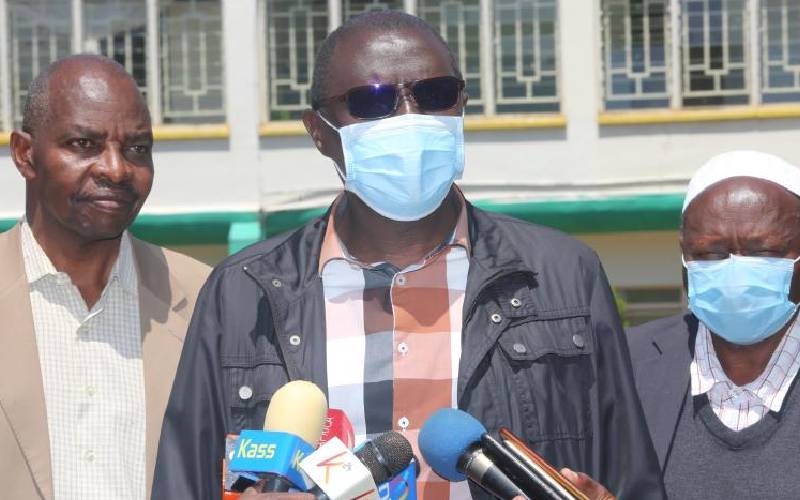×
The Standard e-Paper
Informed Minds Prefer The Standard

Agriculture Parliamentary Committee Chairman and Moiben MP Silas Tiren (centre), accompanied by AFC Director Kipkorir Menjo and Yusuf Keitany address the press at the Eldoret NCPB branch. [Peter Ochieng, Standard]
High production costs, climate change, pests, diseases and poor marketing have conspired to derail the production of maize in Rift Valley.